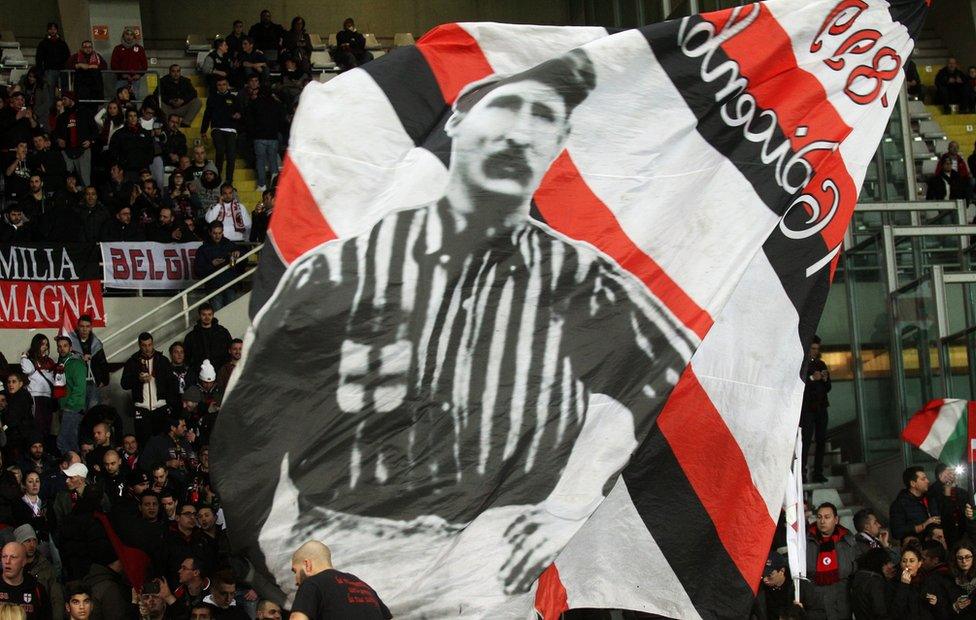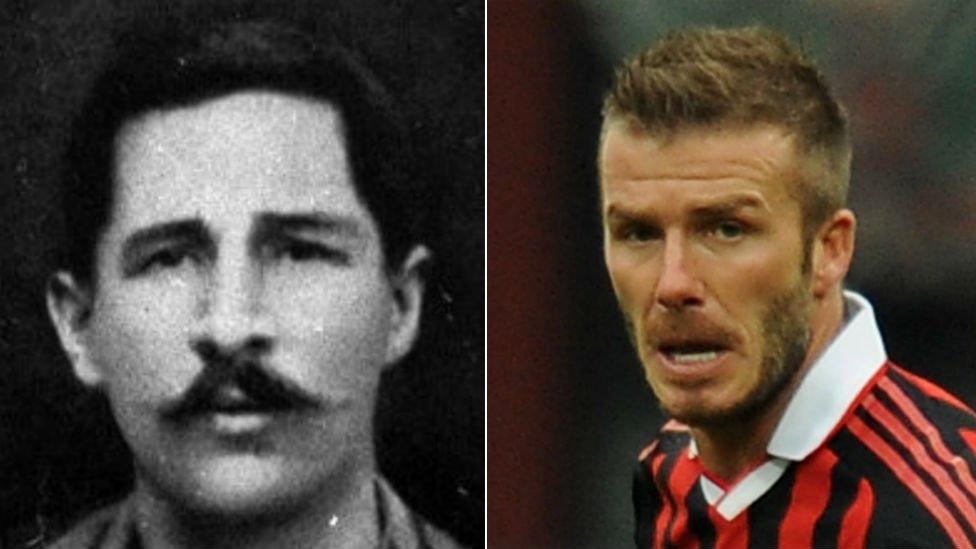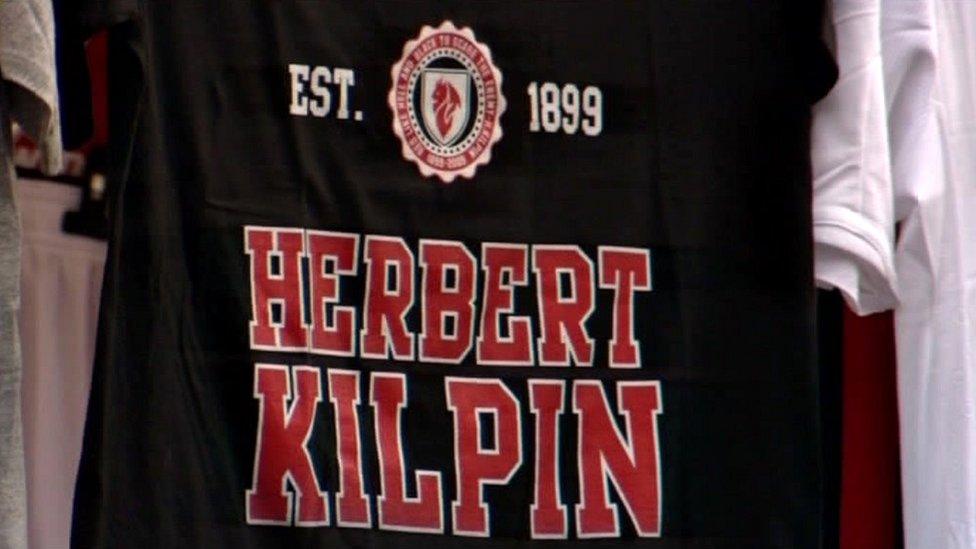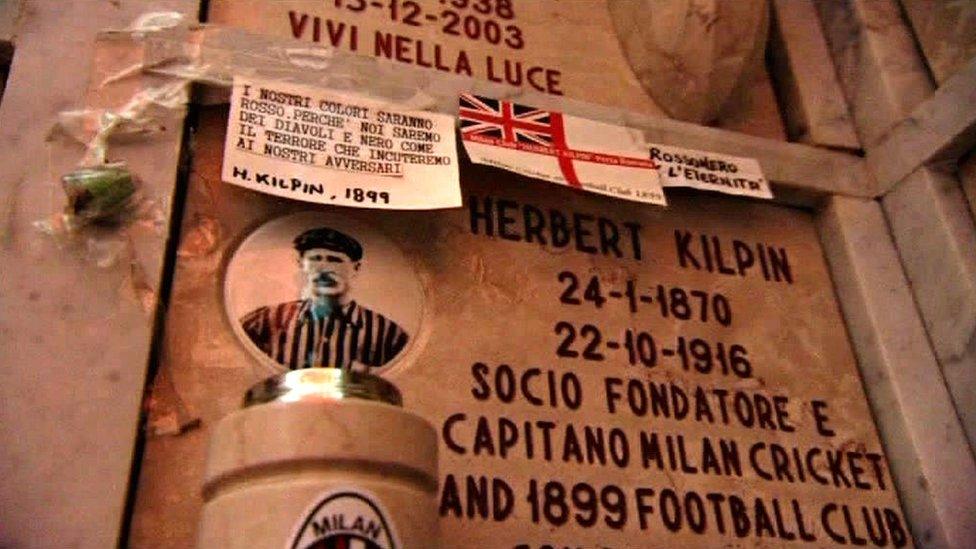Herbert Kilpin: AC Milan's Nottingham-born founder to be honoured
- Published

Herbert Kilpin's image appears on flags and banners in Milan
An Englishman credited with founding football giants AC Milan is to be honoured in his home city.
Herbert Kilpin left Nottingham to work in Italy in the 1890s and later set up the club, becoming the team's first superstar in the process.
Robert Nieri has been fundraising for a plaque to go outside his birthplace to mark 100 years since his death.
He said Kilpin was the "father of Italian football" and deserved more recognition in Nottingham.
You can read more stories about people who have helped shape sport on our Pinterest board, external

Herbert Kilpin was Milan's first English footballer, while David Beckham was the most recent

Fans of AC Milan celebrate their links to Nottingham's Herbert Kilpin
The footballer, who was born at the back of a butcher's shop in Mansfield Road, started Milan Football and Cricket Club in 1899.
Kilpin led the club to its first three championships and even designed its legendary red and black striped shirt.
He died in 1916, aged 46, and his grave was believed lost until a historian tracked it down.
In 1999, AC Milan paid for a new tombstone and he was reburied in the Monumental Cemetery in Milan.
Kilpin's name adorns shirts in Milan and his image can be seen on giant banners on match days.

A bar in Bridlesmith Gate was named after the footballer earlier this year
However, in Nottingham, there has been little recognition of his achievements and writer Mr Nieri set out to change that.
"We need to bring Kilpin to the fore," he said.
"He is the founder of one of the most successful clubs in the world and the father of Italian football.
"He taught the Italians to play. He's massive [in Milan]."
On 22 October, the 100th anniversary of Kilpin's death, a ceremony will take place outside his birthplace, and the Sheriff of Nottingham will name a bus after him.
Mr Nieri, whose book The Lord of Milan is set to be released, is also due to fly to Italy to start filming a documentary, external about the star.

The humble man who made Milan

Herbert Kilpin has a plaque at the Monumental cemetery in Milan
Details about Herbert Kilpin's remarkable life only started to emerge over the past few decades.
How did a whisky-guzzling, chain-smoking son of a butcher from Nottingham come to set up one of the world's biggest and most successful clubs?
Other English ex-pats helped him, of course, but it is Kilpin who has remained in the imagination here and in Italy.
While his friends became part of the fledgling Italian football association, Kilpin just wanted to play football.
And that is why, according to some, he is a "grassroots football icon" - concerned only by what happened on the pitch.
It is hoped more recognition of his story will inspire a generation of young footballers.
Source: The Lord of Milan, external
